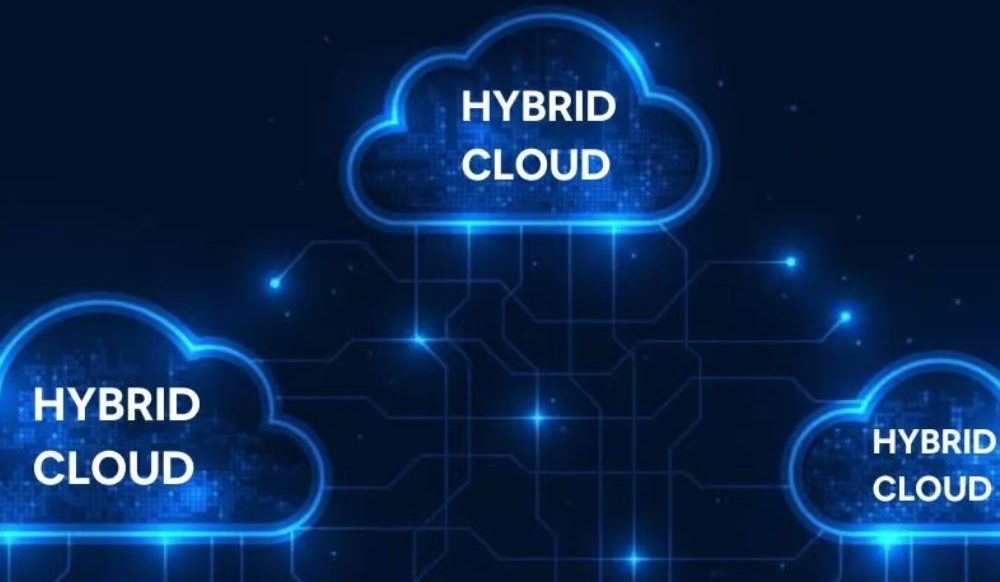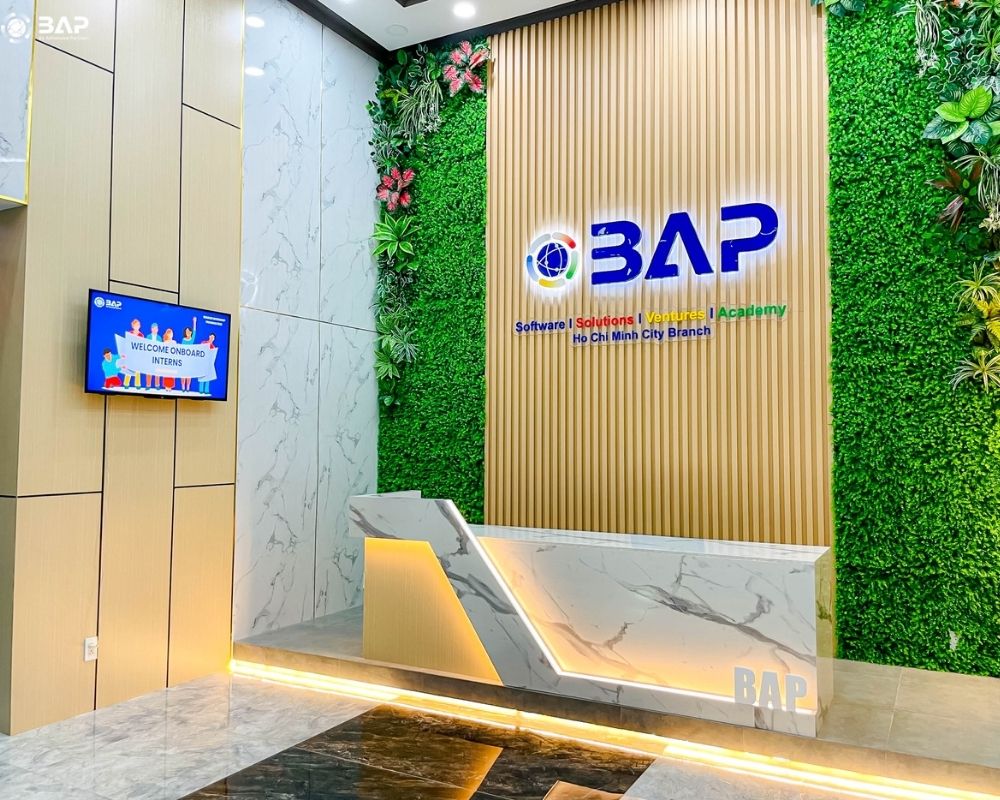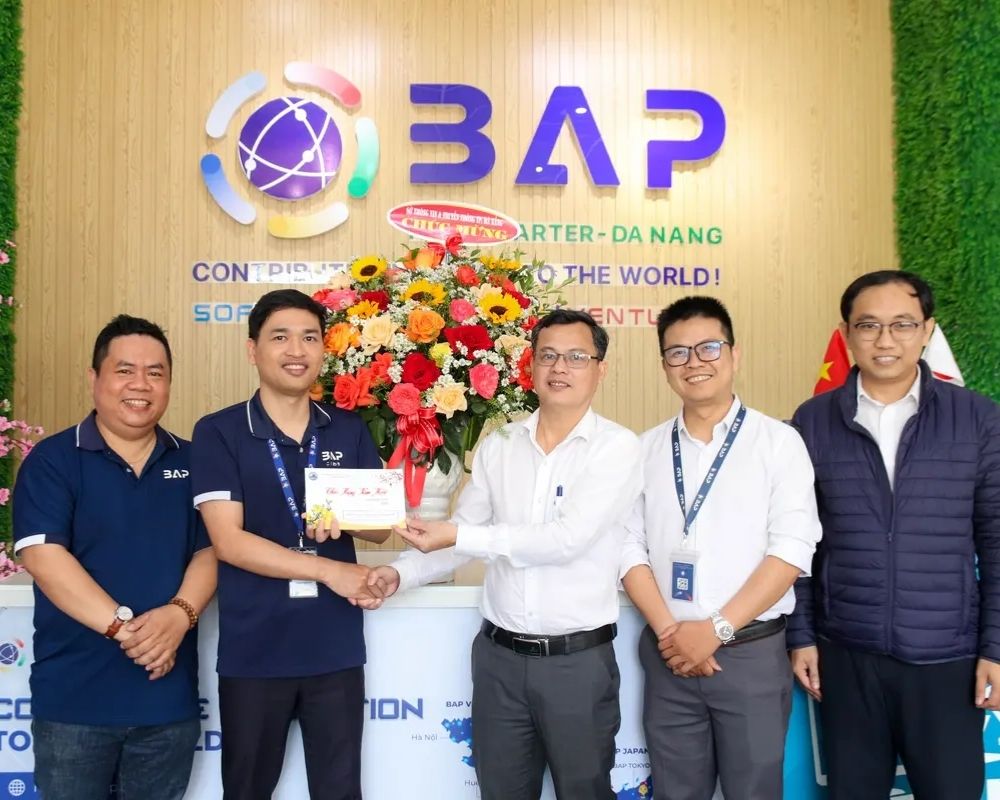While many businesses still hesitate between developing traditional software or adopting AI technologies, an optimal path is emerging: Hybrid Software – the combination of traditional software platforms and Artificial Intelligence (AI). This article will help you understand what hybrid software is, why it is becoming a trend, and how BAP Software is implementing this solution across various industries such as healthcare, education, finance, and retail.

Hybrid software development technology integrating AI into traditional systems. Source: VinaHost
What is Hybrid Software? And Why is It the New Trend for Enterprises?
Definition of Hybrid Software
Hybrid software is a model that combines traditional platforms (web, mobile, business systems…) with Artificial Intelligence (AI) to enhance performance, personalize user experience, and automate data processing workflows.
Comparison of Three Software Development Models
| Feature | Traditional Software | Pure AI | Hybrid Software |
|---|---|---|---|
| Data Processing | Fixed logic programming | Learns from big data | Combines both |
| Personalization | Low | High | High |
| Stability | High | Low (if data is flawed) | High |
| Practical Applications | Internal management | Content creation, consultation | ERP, CRM + AI Agent, automatic suggestions |
Why Are Businesses Shifting to Hybrid?
Leverage stable legacy infrastructure
Add intelligent AI layers to differentiate and optimize resources
Easier to maintain, expand, and integrate than rewriting from scratch
Suitable for a controlled digital transformation phase
Hybrid software is the ideal bridge between traditional software and the AI-powered future.
Benefits of Integrating AI into Traditional Software
The integration of traditional software and AI is not just a technological upgrade—it delivers a significant competitive edge in operations and customer care.
Automation of Repetitive Processes
Tasks like data entry, error checking, email sending, and reporting can be efficiently handled by AI.
AI RPA (Robotic Process Automation) combined with traditional software reduces human errors and accelerates workflow processing.
Personalized User Experience
AI enables systems to remember user habits, behavior, and needs, offering tailored content, products, and notifications.
Applications in CRM, e-commerce, LMS, and booking systems have shown clear improvements in retention and conversion rates.
Advanced Analytics
AI can process millions of historical data rows to provide recommendations, alerts, and future trend forecasts.
It empowers managers to make faster, more accurate decisions compared to relying on instincts or manual reports.
Increased Flexibility and Scalability
With AI deployed via microservices, businesses can update individual features without disrupting the entire system.
Software evolves and adapts over time without requiring full code rewrites as requirements change.
Enhanced Competitive Advantage
Businesses that integrate AI early often outperform in responsiveness, customer experience, and lower operational costs.
It also signals readiness for digital transformation to investors and partners.
Integrating AI into software is not just a tech enhancement—it’s a strategic step toward comprehensive upgrades in operations and services.

Benefits of implementing AI-integrated hybrid software. Source: Erlebe Software
How BAP Implements Hybrid Software
With over 300+ tech engineers and AI experts, BAP Software is one of Vietnam’s pioneers in developing hybrid AI-integrated software solutions.
AI Technologies Applied by BAP
GenAI & LLMs (GPT-4, Claude, LLaMA…): Build AI agents, virtual assistants, content generation, natural language processing
AI Vision (YOLOv8, OpenCV): Image recognition, product inspection, factory security surveillance
Recommendation AI / Predictive Models: Product suggestions, demand forecasting, anomaly detection in operations
Industry-Specific AI Agents
Education: Learning assistants, auto grading, teacher support
Healthcare: Medical record retrieval, medical image analysis
Logistics: Order tracking, optimal route recommendations
Retail: Product suggestions, automated customer care based on purchase history
Traditional Software Platforms
Languages & Frameworks: Java, PHP, Flutter, React, .NET, Python
Enterprise Software: ERP, CRM, LMS, HRM with API integration
Low-Code Platforms: Rapid deployment via OutSystems or custom internal platforms
BAP Implementation Process
BAP applies Agile methodology combined with MLOps to ensure rapid development while keeping AI continuously learning from new data:
Analyze requirements – business problem statement
Design hybrid system architecture (modular AI components for scalability)
Train AI models & integrate into systems
Deploy MVP and conduct roadmap-based testing
Optimize, monitor, and maintain periodically
With deep understanding in both enterprise software development and modern AI technologies, BAP Software is the ideal partner for building effective, scalable hybrid solutions.

BAP Software – Hybrid AI implementation company in Vietnam. Source: BAP Software
Hybrid AI Software by Industry – From Theory to Practice at BAP
The integration of AI and traditional software has been realized by BAP Software through various real-world projects across diverse sectors. Below are standout examples:
Healthcare – AI Vision Assisting Medical Imaging Diagnosis
Challenge: Hospitals need fast and accurate analysis of X-ray images to support diagnostic processes.
Solution: BAP developed an AI system using YOLOv8 and OpenCV to detect anomalies in X-ray and MRI images.
Result: Reduced medical image reading time by 35%, improved diagnostic accuracy up to 92%.
Education – LMS System with Integrated GenAI
Challenge: Students need personalized learning support; teachers are overloaded with grading and after-hours support.
Solution: BAP built an LMS system integrated with GenAI (GPT API) to auto-generate exercises, explain answers, and grade essays.
Result: Reduced teacher workload by 40%, students enjoy more effective, flexible learning experiences.
Retail – AI-Integrated CRM for Product and Content Recommendations
Challenge: Low conversion rates due to lack of personalized customer experience.
Solution: BAP integrated Recommendation AI and GenAI into CRM to suggest products, send personalized emails, and automate customer care.
Result: Increased average order value by 25%, boosted customer retention by 18% after 3 months.
Manufacturing – MES with AI Vision & Predictive Maintenance
Challenge: Need to ensure product quality control and prevent machine failures.
Solution: Developed MES system with AI Vision for real-time product inspection, combined with predictive maintenance AI.
Result: Reduced product defects by 45%, saved 30% maintenance costs through predictive alerts.
Finance – eKYC & Automated Financial Advisory AI
Challenge: Customer identity verification and financial package recommendations require large-scale data and behavioral analysis.
Solution: Built eKYC system integrated with AI to analyze financial behavior, credit scoring, and product suggestions.
Result: Reduced processing time by 60%, increased new service sign-ups by 35%.
These applications prove that hybrid software is not just a concept—it delivers real, measurable business value at BAP.

Hybrid AI software applications at BAP. Source: BAP Software
Conclusion & Recommendations for Businesses
As AI technology rapidly evolves, hybrid software has become more than a tech choice—it’s a long-term strategy for businesses aiming to optimize operations, personalize customer experience, and make data-driven decisions.
Strengths of the Hybrid Model
Leverages existing traditional infrastructure
Flexible upgrades with smart AI modules
Suitable for all stages of digital transformation—from small tests to full deployments
To Implement Effectively, Businesses Should
Choose partners who understand both software and AI – like BAP Software
Define clear business problems before deploying technology
Build a phase-by-phase roadmap instead of “AI-fying” everything all at once
AI does not replace traditional software – it enhances it.
Contact BAP Software to begin your journey with hybrid software tailored to your business needs.












